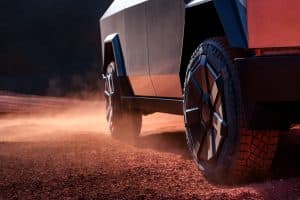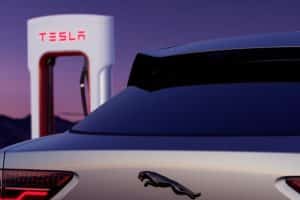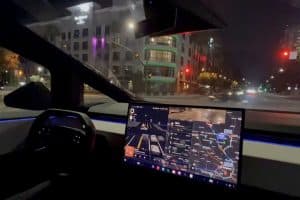Key Takeaways
- Hyundai and Genesis EVs can now use Tesla’s Superchargers across the U.S., increasing charging options for their customers.
- Customers with specific Hyundai EV models can use a complimentary CCS to NACS adapter to access the Superchargers.
- Emails will be sent to Hyundai EV owners who purchased their cars before January 31, 2025, to claim their free adapters starting April 7.
- The Supercharger access currently only covers the U.S., with plans to expand into Canada later this year.
- Hyundai experienced record auto sales in the U.S. in 2024, with a significant increase in EV sales.
In an electrifying move for the automotive industry, Hyundai and its luxury brand Genesis have announced access to Tesla’s extensive Supercharger network in the United States. This strategic decision significantly broadens the charging options available for Hyundai and Genesis EV drivers, marking a notable shift in the landscape of electric vehicle infrastructure.
The Era of Open Supercharging
Tesla’s Supercharger network, renowned for its speed and extensive coverage, was once an exclusive perk for Tesla owners. However, a new era is dawning where multiple auto brands, including Hyundai and Genesis, will benefit from this robust infrastructure.
What This Means for Hyundai and Genesis EV Owners
- Increased Accessibility: Owners of specific models like the Kona Electric, Ioniq series, and Genesis EVs can now charge their vehicles at over 20,000 Tesla Superchargers across the U.S., effectively doubling their fast-charging options.
- Complimentary Adapter: To access this feature, Hyundai is providing a free CCS to NACS adapter. Emails will begin to roll out starting the week of April 7, aiming to guide eligible owners through claiming this essential accessory.
Expansion Plans: Beyond the U.S.
Currently, the integration into Tesla’s Supercharging network is available solely within the United States. However, plans to extend this access into Canada are on the horizon, promising a broader reach and increased convenience for North American customers.
Hyundai’s Strategic Forefront
Hyundai’s aggressive push into the EV market is evident from last year’s record-breaking sales figures. The automaker witnessed a remarkable 13 percent surge in EV sales, a testament to its forward-thinking strategy and robust market presence.
Future Implications for the EV Market
The collaboration between Hyundai, Genesis, and Tesla has several implications for the broader EV market:
- Infrastructure Development: Such partnerships boost the demand and subsequent development of more extensive and efficient charging infrastructure, significantly aiding the transition towards electric mobility.
- Consumer Confidence: With more brands joining forces, driver confidence in EV reliability and viability is set to increase, potentially accelerating EV adoption.
- Market Competitiveness: As more manufacturers gain access to elite networks like Tesla’s, competitive pressures may inspire other charging networks to open up similar partnerships, benefitting consumers through improved services.
1. How can Hyundai EV owners claim the free adapter for Tesla Superchargers?
Hyundai EV owners who purchased their vehicles before January 31, 2025, should expect an informative email regarding the process to claim their complimentary NACS adapters. These emails are set to be distributed starting April 7.
2. Which Hyundai EV models can now access Tesla Superchargers?
Models such as the Kona Electric, Ioniq 5, Ioniq 5 N, and Ioniq 6 are among the Hyundai vehicles now compatible with Tesla’s Supercharger network, increasing their charging flexibility and convenience.
3. What future plans does Hyundai have for expanding Supercharger access in Canada?
While the current announcement focuses on the U.S., Hyundai intends to expand Supercharger access into Canada later this year. Details on this rollout will likely emerge as plans solidify, promising further enhanced charging solutions for Canadian customers.
Hyundai and Genesis’ integration into the Tesla Supercharger ecosystem marks a pivotal milestone not only for the brands themselves but for the automotive industry’s future. As alliances like these continue to form, the transition to electric vehicles becomes more attainable, convenient, and ultimately, inevitable.





